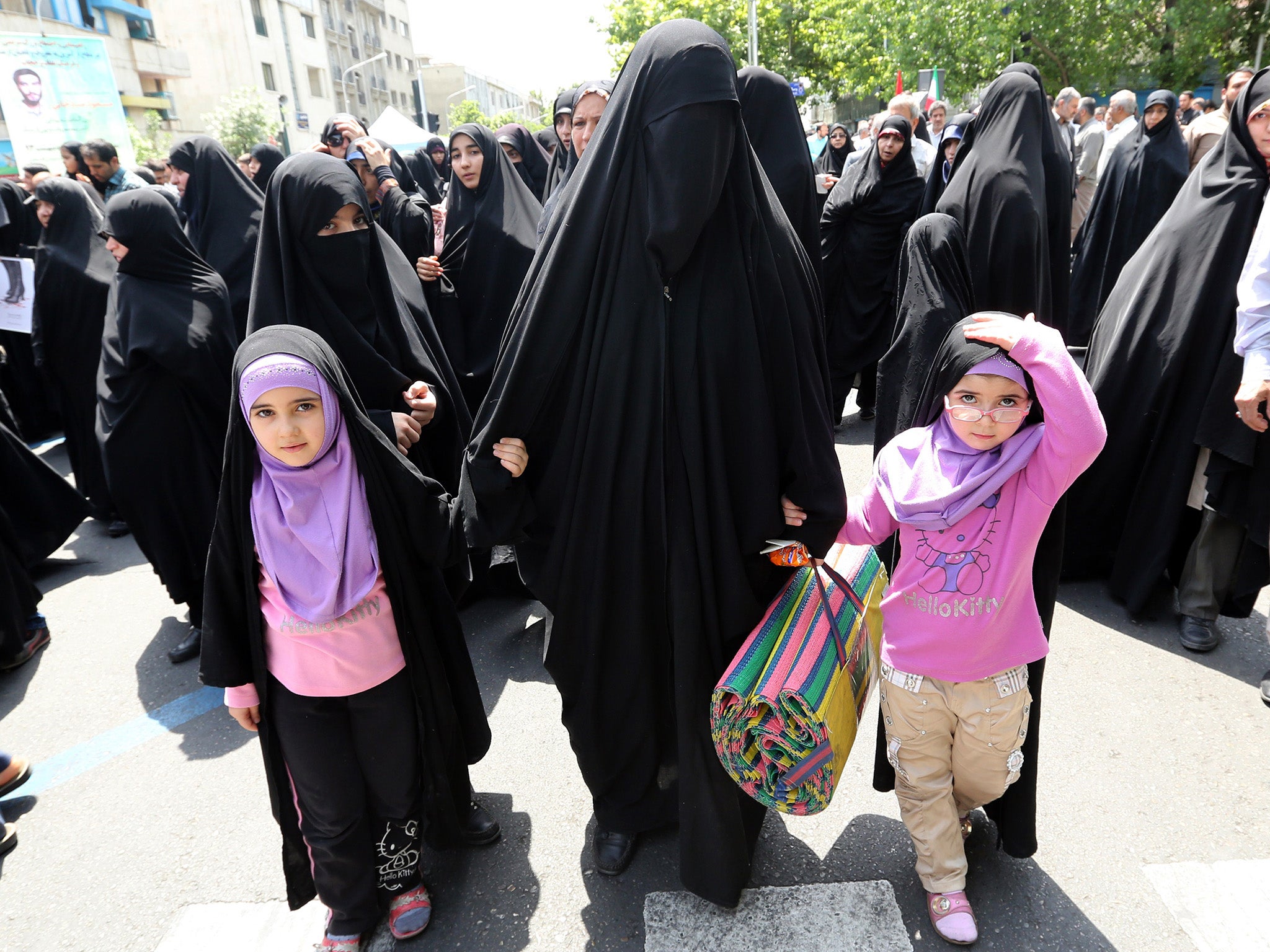Iranian women defy threat of decade-long jail sentence by taking photos of themselves without headscarves
‘Women in these videos are braver and angrier than before,’ says Masih Alinejad

Your support helps us to tell the story
From reproductive rights to climate change to Big Tech, The Independent is on the ground when the story is developing. Whether it's investigating the financials of Elon Musk's pro-Trump PAC or producing our latest documentary, 'The A Word', which shines a light on the American women fighting for reproductive rights, we know how important it is to parse out the facts from the messaging.
At such a critical moment in US history, we need reporters on the ground. Your donation allows us to keep sending journalists to speak to both sides of the story.
The Independent is trusted by Americans across the entire political spectrum. And unlike many other quality news outlets, we choose not to lock Americans out of our reporting and analysis with paywalls. We believe quality journalism should be available to everyone, paid for by those who can afford it.
Your support makes all the difference.Iranian women are sharing videos of themselves removing their headscarves in public, despite a recent ruling they could face 10 years in jail for doing so.
Masih Alinejad, an Iranian journalist and prominent activist based in the US, started a social media campaign in 2014 encouraging women in Iran to share self-portraits without the Islamic veil, which she then goes on to share on her Facebook page called “My Stealthy Freedom”.
Ms Alinejad said campaigners had carried on sending her pictures and videos even after Tehran’s Revolutionary Court ruled they could face up to 10 years in prison on Monday.
“Today I have received lots of videos from inside Iran. And women in these videos are braver and angrier than before,” she said.
Ms Alinejad said Iran’s government was “scared of women practising civil disobedience and engaging in peaceful protest”.
Wearing the Islamic headscarf is compulsory in public for all women in Iran – with those who do not wear a hijab, or are seen to be wearing a “bad hijab” by allowing some of their hair to show, facing punishments spanning from fines to imprisonment.
Female athletes have to wear the hijab during competitions.
Amnesty International says women and girls are regularly stopped in the street by morality police and vigilantes.
The head of Tehran’s Revolutionary Court said those sharing protest videos with Ms Alinejad – who Tehran considers to be acting on behalf of the US – could be jailed for up to a decade under laws relating to cooperation with an enemy state.
“All those women who send the video footage of removing their hijab to her will be sentenced to between one to 10 years of jail,” Musa Ghazanfarabadi told the semi-official Fars news agency.
According to Amnesty International, at least 39 women were arrested last year in connection with anti-hijab protests.
Raha Bahreini, a researcher at the human rights organisation who specialises in Iran, said the country’s laws are written in a “very broad and vague manner” and this can be used by courts to increase penalties for women’s rights protesters.
She said: “This is a distressing pattern which shows that they want to increase their crackdown on this peaceful movement and they want to punish those who dare to defy compulsory veiling laws with very severe penalties”.
Last year, an Iranian woman was sentenced to two years in prison and 18 years of probation for removing her headscarf in a protest.
Shaparak Shajarizadeh said she had been sentenced for “opposing the compulsory hijab” and “waving a white flag of peace in the street”.
There has been mounting resistance to the enforced hijab over recent years in Iran – with some women shaving their hair and dressing as men. Many women are opposed to being forced to cover their heads and protesters have removed their hijabs and twirled them on sticks in defiance.
Women’s rights are severely restricted in Iran. Iranian women have been barred from watching stadium football matches for most of the 40 years since the Islamic Revolution. The clerical regime has been reported to have hired security forces since August last year to deal with women who attempt to sneak into the stadium with men’s make-up.
Some 60 per cent of Iranian women have experienced domestic violence at least once in their life, according to official data.
Last year, Iranian state TV was forced to apologise for a segment which featured a relationship expert tell domestic violence victims to kiss their husband’s feet.
“Even if your husband is a drug addict, if he beats you, just do it and you will see a miracle in your life,” the expert was said to have told viewers.
The woman, whose advice was roundly mocked on social media, told spouses to “slowly give him a foot massage” and then “kiss his feet”.
She said this would relieve a husband’s stress and help prevent strokes and heart attacks.
Join our commenting forum
Join thought-provoking conversations, follow other Independent readers and see their replies
Comments